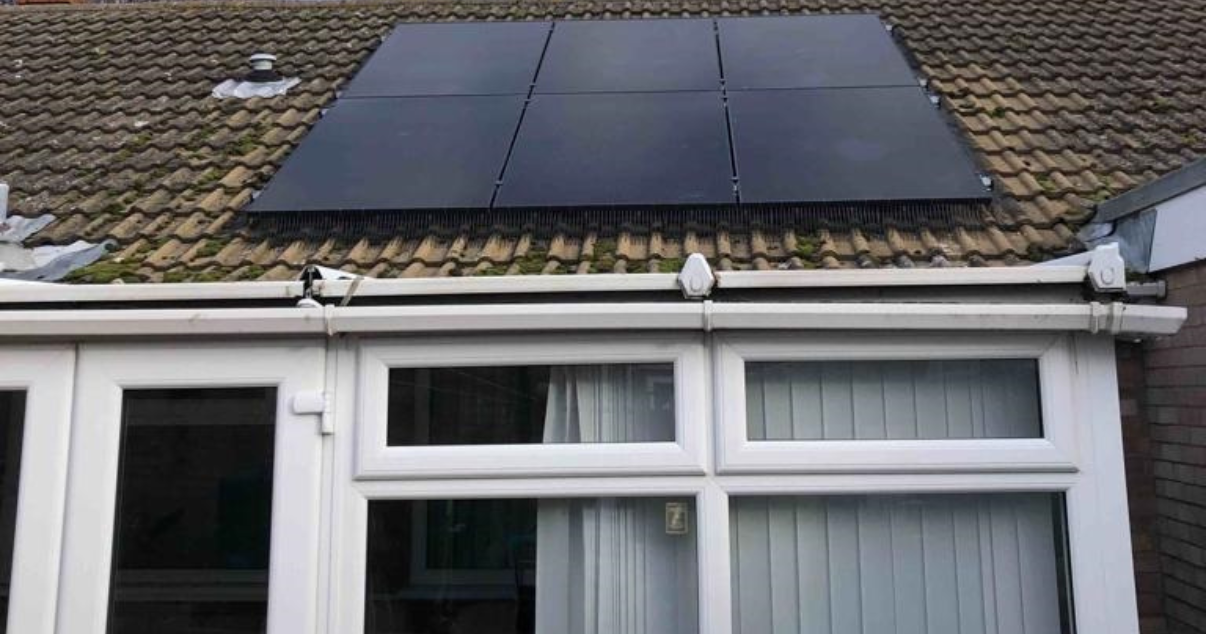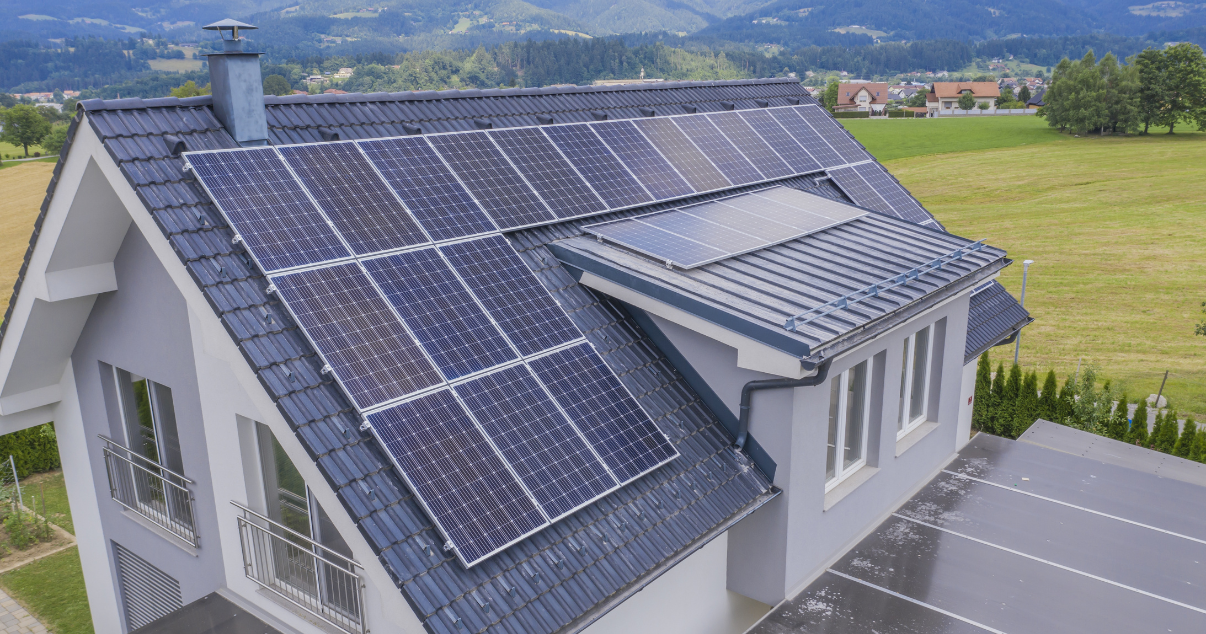Choosing to install solar panels to the roof of your home is a big decision, and it’s important that you go into it with complete confidence and peace of mind.
When we speak to customers who are considering solar panel installations, they are generally aware of the broad benefits of investing in solar energy, such as the reduced energy bills, no longer being so reliant on energy from the national grid, and the positive impact that embracing renewable energy can have on our planet.
However, we often get asked about how solar panels work, what solar panel efficiency means, and which types of solar panels are the most effective for UK households.
In this article, we’re going to answer these common questions.
But remember, we’re just at the end of the phone if you have any additional queries.
What are solar panels exactly?
Explained simply, solar panels generate electricity for use in your home from the sun's renewable energy.
A solar panel is made up of many photovoltaic (PV) cells, which are typically manufactured using a semi-conductive material like silicon.
When sunlight strikes these PV cells, photons dislodge electrons from silicon atoms. generating an electric current. This is commonly referred to as the photovoltaic effect.
However, the generated electricity is initially the form of 'direct current' (DC), which isn't immediately usable. To make the electricity suitable for domestic use, it needs to be transformed into an 'alternating current' (AC) through a solar panel inverter.
After conversion to AC, the electricity is ready to power all your household appliances.
It might surprise you to know that residential solar panel technology has been available since the mid-1990s. However, the adoption of solar technology was initially slow due to the high costs and poor efficiency of early solar panels.
Advancements in technology over recent decades have significantly improved the efficiency of solar panels, reducing their cost.
What does solar panel efficiency mean?
Solar panel efficiency refers to the percentage of sunlight a solar panel can convert into electricity.
For example, a solar panel with a 20% efficiency rate converts 20% of the sunlight that reaches it into usable electricity.
When we mention the high efficiency of 18-24% of a new solar panel system, we often get confused looks and questions about why it’s not closer to 100%.
So, why can't solar panels convert all the sunlight they receive?
One of the main reasons is down to a concept called ‘spectral mismatch.’ The sun's rays come in various wavelengths, and solar panels can only absorb wavelengths within a certain range. A modern solar panel installation is designed to capture as much of the sun's energy as possible. Still, there will always be certain wavelengths that aren’t going to be converted into electricity for your home.

Reflection is another consideration to consider. Even with a lot of modern solar panels being treated with an anti-reflective coating, some sunlight is going to reflect off your solar panels rather than being absorbed.
It might also surprise you to note that the efficiency of solar panels can be affected by temperature, with solar panel installations becoming less efficient whenever temperatures rise significantly above a certain point.
Another key factor influencing the efficiency of modern solar panels is how they are made and the purity of the silicon. As a general rule, the higher the purity of silicon, the more efficient your panels are likely to be.
For example, a monocrystalline solar panel is made with each cell being created from a single crystal of silicon. This is the most efficient type of solar panel, with a typical efficiency of 18-24%.
Polycrystalline solar panels are made by melting several pieces of silicon together to create each solar cell. This process makes polycrystalline solar panels slightly cheaper than monocrystalline, but this comes with a trade-off on efficiency, with a typical efficiency rate of 14-17%.
Which solar panels are the most effective?
There is a wide range of solar panels available for domestic installation, including monocrystalline panels, polycrystalline panels, and thin film solar panels.

All have different pros and cons, which we cover in more detail in our article on the different types of solar panels.
At Projects4Roofing, we only install the most efficient monocrystalline solar panels as they provide the best results for our customers and help you to reach the break-even point for your installation faster.
Need a recap on the benefits of a solar panel installation?
Choosing to install solar panels on the roof of your home is a big decision that requires a significant upfront investment.
It’s not a decision to be rushed.
We’d always recommend speaking to several different solar panel installation partners and asking all the questions you need to ensure you have complete confidence and peace of mind. If you ever want to speak to our experienced team at Projects4Roofing, we’re just at the end of the phone.
For the majority of customers, once their initial queries and questions have been answered, they choose to go ahead with investment in solar panels to enjoy:
- Generating their own renewable energy
- A reduction in monthly energy bills
- Reduced reliance on the national grid for energy
- Being less susceptible to future rises in energy costs
- Reducing the carbon footprint of their home
- Becoming more eco-friendly, and doing their part to help protect the environment
- Potentially being able to sell excess energy back to the national grid through the Smart Export Guarantee (SEG)
The benefits of solar panel installations can be even more significant if you opt for battery storage.
Battery storage can help you retain any excess electricity generated during daylight hours for use during the night helping you improve the overall efficiency of your solar panel installation.
However, battery storage can increase the initial upfront cost of your solar panel installation, so it’s important to make sure it's the right choice for you. If you’re curious, just get in touch with one of our team to talk through your options.
Read what other Projects4Roofing customers are saying
“I would like to thank you very much for the excellent work your company did installing solar panels on my bungalow.
The men you sent to do the installation were hard working, friendly and made sure the panels were placed so the appearance was good.
The electrician was wonderful at his job. He was polite and hard working.
He would not go home until everything was perfect.
I would highly recommend your firm” - Janet Pettitt | Cambridgeshire
Read more testimonials >>
Are you ready to switch on the power of solar?
If you’re thinking about installing solar panels in your home, it’s important to do your research and choose the right installation partner.
At Projects4Roofing, we’ve been managing roofing projects for more than a decade, and we’re proud to be a Which? Trusted Trader.
So, if you’ve got any questions or queries at all, just give our friendly team a call!


